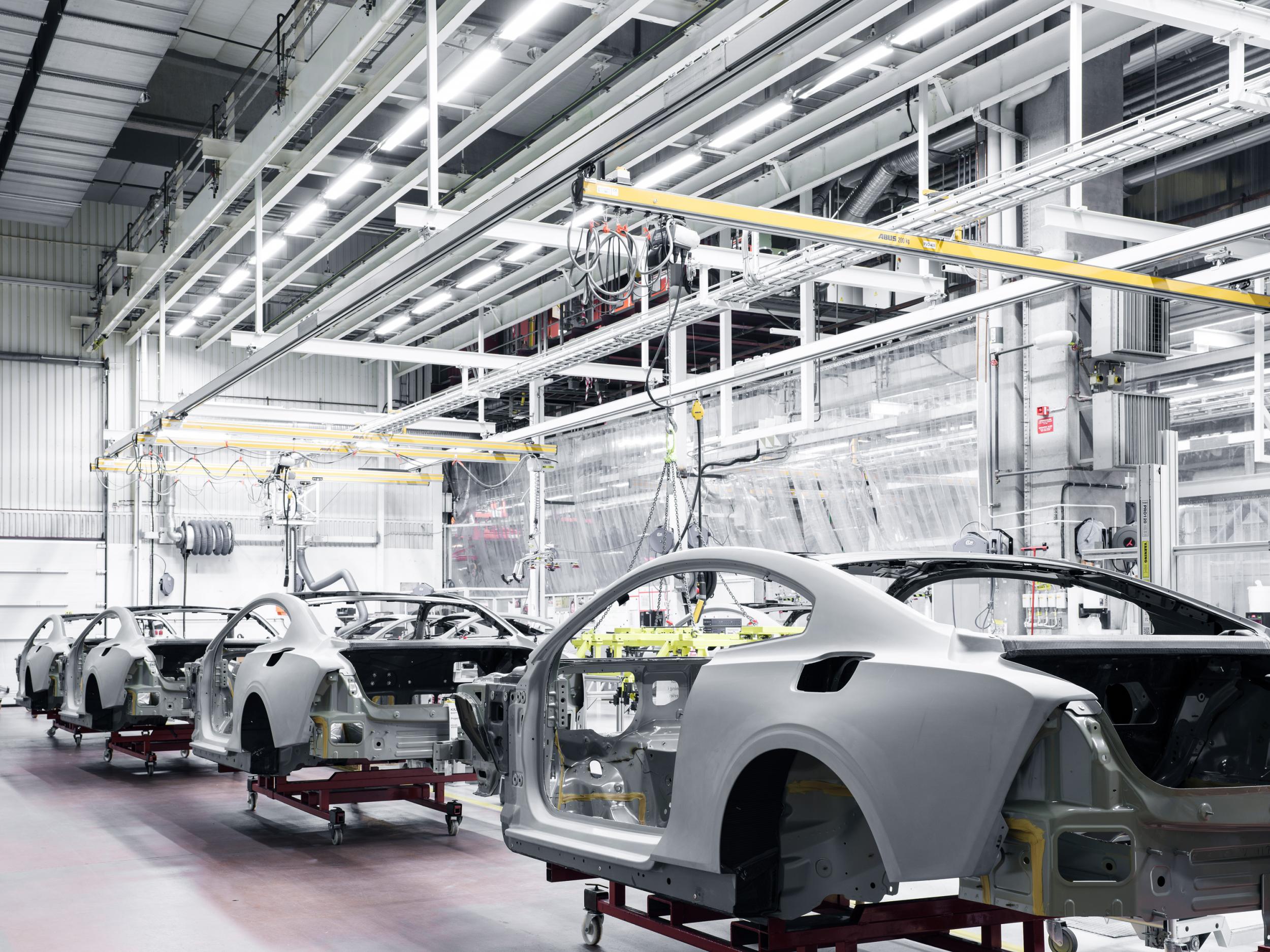How the British car industry is electrifying its future – with help from China
Polestar, Volvo’s now-separate performance brand, is to engineer future models in Coventry, writes Sean O’Grady

With so much grim news about the British car industry around, some, though not all, directly connected to Brexit, it is refreshing to see at least one overseas investor showing some interest in the UK as an engineering base.
Polestar, the performance arm of Volvo, has significantly expanded its research and development capacity with the establishment of a new R&D centre in Coventry. The new facility will allow Polestar to increase its own R&D capabilities, and further strengthens the brand’s ability to engineer its future electric performance vehicles. Polestar, like Volvo, is ultimately owned by the Chinese giant Geely, which is also developing other brands, Lynk & Co and Geometry, with a view to the electrification of its products. It joins Geely’s other UK subsidiary, LTI, which makes the famous black cabs, including all-electric versions, in Coventry.
Polestar’s UK engineering operation will initially employ around 60 engineers, bringing specialised skills to the company that will specifically support the development of future Polestar cars. The company says that engineers have already been involved in preliminary development work for Polestar, and will now be “fully immersed” into future Polestar car projects as part of a global Polestar engineering network.
“Investing in the automotive engineering talent that the UK has to offer will strengthen our capabilities,” says Thomas Ingenlath, chief executive officer at Polestar. “The passion and dedication of these great engineers fit the Polestar spirit perfectly and will allow us to create some really awesome cars.”
Hans Pehrson, responsible for R&D at Polestar, adds: “Polestar’s role as a technology spearhead requires new and developing skills in low-volume, lightweight, multi-material performance car engineering, and the new UK operation will allow us to take the next steps towards our future cars.
“The team that will kickstart the new UK R&D subsidiary is already well versed in Polestar engineering philosophy, and we will expand the initial team further during the course of 2019. These engineers will be a great complement to our existing R&D team based in Sweden, and other supporting teams around the world.”
Polestar enjoys specific technological and engineering synergies with Volvo Cars and benefits from significant economies of scale as a result. This facilitates the successful design, development and production of separately-branded, electric performance cars.
The brand launched in 2017 with the Polestar 1 – a low-volume Electric Performance Hybrid GT with 600hp, 1,000 Nm and an electric-only range of 150km – the longest of any hybrid car in the world. In 2019, the Polestar 2 was revealed as the company’s first full electric, higher volume premium car designed to compete around the Tesla Model 3. In the future, Polestar 3 will join the portfolio as a fully electric performance SUV.
Polestar also applies its technology and expertise to electrified Volvo cars. The new Volvo S60, V60 and XC60 T8 Polestar engineered models feature key Polestar components to create what is claimed to be “a sharper and more engaging driving experience”.
Subscribe to Independent Premium to bookmark this article
Want to bookmark your favourite articles and stories to read or reference later? Start your Independent Premium subscription today.

Join our commenting forum
Join thought-provoking conversations, follow other Independent readers and see their replies